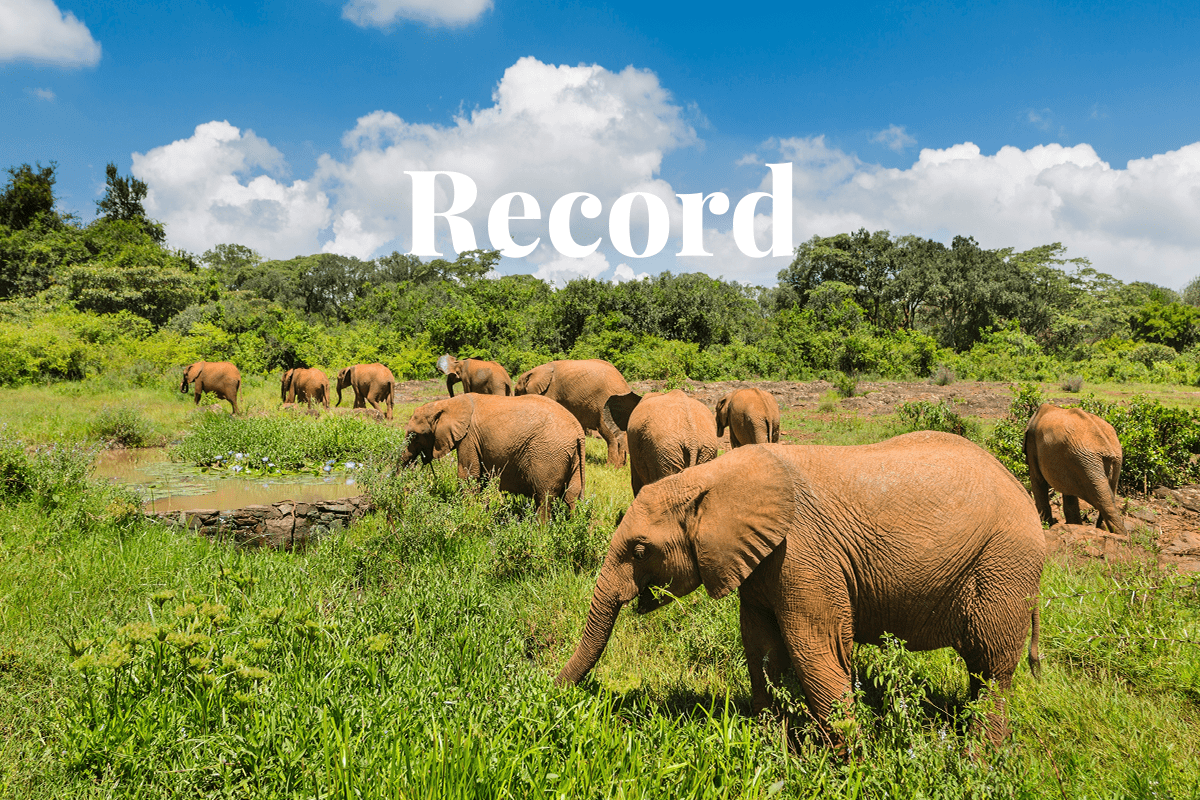Over a dozen companies, primarily from Saudi Arabia, took part in a significant carbon credit auction in Nairobi, hailed as the largest of its kind worldwide. The event witnessed heightened demand for carbon offsets, generated through eco-friendly initiatives such as tree planting and using cleaner cooking fuel, as companies aimed to fulfil their net-zero emissions objectives. 16 Saudi Arabian companies, including Aramco and Saudi Electricity Company, paid around $6,20 per carbon credit, for a total of more than 2 million credits. Each credit represents one tonne of carbon dioxide removed from the atmosphere.
 Baby elephants in Nairobi National Park, Kenya.
Baby elephants in Nairobi National Park, Kenya.
The Regional Voluntary Carbon Market Company (RVCMC), established by the Saudi Public Investment Fund and Saudi Tawadul Group, conducted the auction. The certified credits that were sold will fund projects that either avoid emissions by employing sustainable technologies or remove carbon from the atmosphere, according to RVCMC's statement.
Notable bidders at the auction included Saudi Airlines, as the credits' certification encompassed offsetting airline emissions, as confirmed by RVCMC’s CEO, Riham ElGizy, in an interview with Reuters.
Read more: How natural climate solutions can help meet the Paris Agreement’s goals
RVCMC, which previously organised an auction of 1.4 million carbon credits in Riyadh last October, specifically chose Kenya as the venue to underscore the importance of investing in climate projects. Although Kenya contributes less than 1% to global annual emissions, the nation has experienced severe impacts of climate change, including devastating droughts that have ravaged crops, wildlife, and animals.
Scaling the voluntary carbon market is considered a crucial aspect of the global response to environmental issues. It allows companies to offset a portion of their emissions by investing in projects that help mitigate the impact of greenhouse gases.
As more companies target achieving net-zero emissions by 2050, the demand for carbon offsets is expected to surge. However, concerns have recently been raised on the market, prompting various groups to advocate for stricter regulations in the industry.
According to Ecosystem Marketplace, the voluntary carbon credit market was valued at approximately $2 billion in 2021. Consultants at McKinsey estimate that the market could reach $50 billion by 2030. Despite these promising projections, critics have highlighted issues such as poor transparency, limited credit supply, and project quality concerns.
Read more: The price of carbon offsetting could skyrocket for companies by 2030
ElGizy dismissed the criticism, highlighting that RVCMC collaborates with two independent teams of experts who thoroughly vet the projects contributing credits for sale. Projects with any red flags are immediately excluded from the auction, ensuring a robust selection process.
RVCMC confirmed that 70% of the credits offered at the auction were generated by projects in Africa. These projects encompassed initiatives such as supplying improved clean cookstoves to communities in Kenya and Rwanda, as well as implementing renewable energy projects in Egypt and South Africa.
The auction in Nairobi demonstrates the global commitment towards meeting sustainability goals and signifies the market's growing recognition and significance. It is a powerful indication that businesses are taking responsibility for addressing environmental issues seriously and actively engaging in sustainable practices. This auction showcases the vital role of carbon credits in the transition to a low-carbon economy, highlighting the willingness of companies to invest in natural climate solutions.
DGB Group is passionately committed to fostering biodiversity and conservation through our high-quality, cutting-edge carbon projects, which are meticulously crafted to generate AAA-rated carbon credits. We collaborate with farmers, landowners, governments, and conservation organisations to create thriving ecosystems so that our projects have the greatest impact possible. With years of experience, we have a proven track record of developing carbon projects that benefit all stakeholders. Our expert team designs and manages projects that yield tangible, sustainable outcomes. In Kenya, we are currently spearheading two remarkable projects: a reforestation initiative and a cookstove programme. These projects exemplify our dedication to creating a greener future and showcase the significant role we play in promoting environmental preservation.
Join the revolution and contact DGB’s experts today



